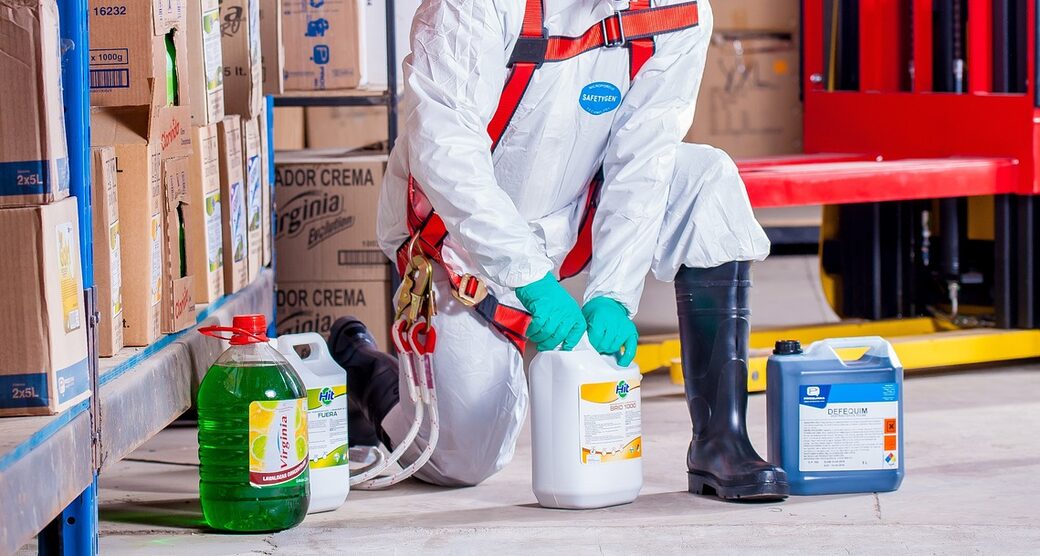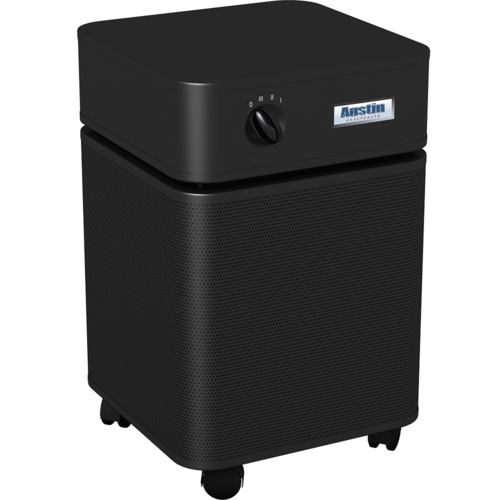Household Chemicals

Harmful Chemicals in Fragrances and Cleaning Products
© TheAirPurifier.org
How does your home smell? Are you using an air freshener or diffuser, or perhaps burning a scented candle? Have you been cleaning with products that have a clean, fresh scent? A quick look in any supermarket will tell you there's a huge marketplace for scented items.
Advertisers convince you that it would be terrible if your furniture, your clothes, or your bathroom didn't smell permanently clean and fresh; think of those air fresheners that change scent, just in case you get used to one smell and don't notice it anymore.
But research shows that those same clean, fresh scents could be reacting in the air to form toxic chemicals in your home.
The most common scents that are associated with cleanliness are pine and citrus (usually lemon). There's a good reason for this: pine is a natural deodorizer and antibacterial, and lemon is an antiseptic and an effective degreaser (you can use lemon juice or half of a lemon to help clean a greasy stove).
Both are natural products that can be used in cleaning. But air fresheners and cleaning products are designed to give you the pleasant smell without you needing to slice a lemon. For this, they use chemical compounds called terpenes.
The smell of pine is a terpene called alpha-pinene, while a citrus smell comes from delta-limonene. These two are the most common, but other scents, like bergamot and lavender, are terpenes too. Of all these, the most reactive is limonene, which has made it the obvious subject for scientific studies.
Limonene and other terpenes are safe substances on their own. Some people experience allergic reactions if a substance containing limonene is sprayed directly onto the skin, which is one of the reasons that products may warn you about possible irritant effects.
But although spraying limonene into the air can't harm you, when it reacts with the ozone in the atmosphere around you, there are two significant harmful effects.
The first is the formation of fine particulates, about the size of the particulates found in diesel exhaust, which can be breathed deep into the lungs and stay there. There's a simple experiment that is performed in chemistry labs around the world.
A peeled orange or lemon is put in a glass box, which is then filled with ozone, and a light is shone through it. The limonene from the fruit combines instantly with the ozone to form fine particles that show up in the light.
Of course, the air in your home isn't pure ozone, but a 1999 study in which particulate levels were measured in offices found that even the naturally occurring levels of ozone in the atmosphere were enough to produce 10 times more particles in an office where limonene was used.
The second reaction is even more concerning. Limonene reacts with ozone to form formaldehyde, which causes skin irritation and breathing problems, and is a known carcinogen.
Breathing low levels of formaldehyde over a short period of time is extremely unlikely to cause you any harm. But in an enclosed environment, prolonged exposure could lead to serious health risks.
A 2012 report into formaldehyde levels in children's daycare centers in California found worrying amounts for an environment where young children were spending up to 50 hours per week.
A recent episode of the BBC television program Trust Me, I'm A Doctor highlighted the high levels of formaldehyde in homes with poor ventilation and frequent use of products containing limonene.
California is known not only for beaches and sunshine, but also smog and air pollution. Consequently, the state has pioneered much of the work on terpenes and health.
In April 2006, a report for the California Air Resources Board set out a number of scenarios wherein the use of cleaning chemicals could result in levels of particulates and formaldehyde that would exceed the guideline for safe amounts.
But these were in carefully controlled environments designed to simulate use of just one terpene-containing product at a time. If you are using several scented cleaning products in a room where there's a plug-in air freshener, you could have an even higher concentration of harmful chemicals.
You can't completely avoid formaldehyde and other dangerous chemicals. Formaldehyde, for example, is given off slowly by many types of furniture. However, you can avoid (or at least mitigate) situations in which you're breathing in high levels of toxins and particulates; the easiest thing to do is to open a window or door.
Modern homes and offices are designed to be energy efficient, which means the windows and doors fit much more closely than in older buildings, and the air in a room is replaced less often.
Most studies suggest that if the air is replaced at least every hour, there is unlikely to be a dangerous level of pollutants. But if you're sitting at home watching TV, it's easy to spend two or three hours in a room that has doors and windows closed; if you use an air freshener and lemon-scented furniture polish, you may be exposing yourself to risk.
When you use cleaning products, make sure that the whole area is well ventilated. This is particularly important when using strong-smelling products in a small area. If you can, clean the windows when they're open, or open them immediately afterwards.
Avoid using more than one scented product in the same room: if you're cleaning the kitchen with a pine-scented disinfectant, then move the air freshener somewhere else.
Be aware of how long you spend in a room that has little or no ventilation. You don't need to run up a huge heating bill by having all the windows open in the middle of winter. Simply getting up to make a cup of tea, opening the door and moving about will create air currents that can make a difference.
Conclusion
Think twice next time you see a product that promises to make your house smell fresh and clean. Are you making your home a pleasant place to live, or a potential source of harm?
Testing
Featured
Austin Air Purifier
Remove Allergens like:
- Bacteria, Dust Mites, Gases
- Mold Spores & Pet Dander
- Pollen, Smoke & Viruses
- VOC's & more...
A 360-degree Air Filtration System
Allergy & Asthma Friendly
Order Now >>




